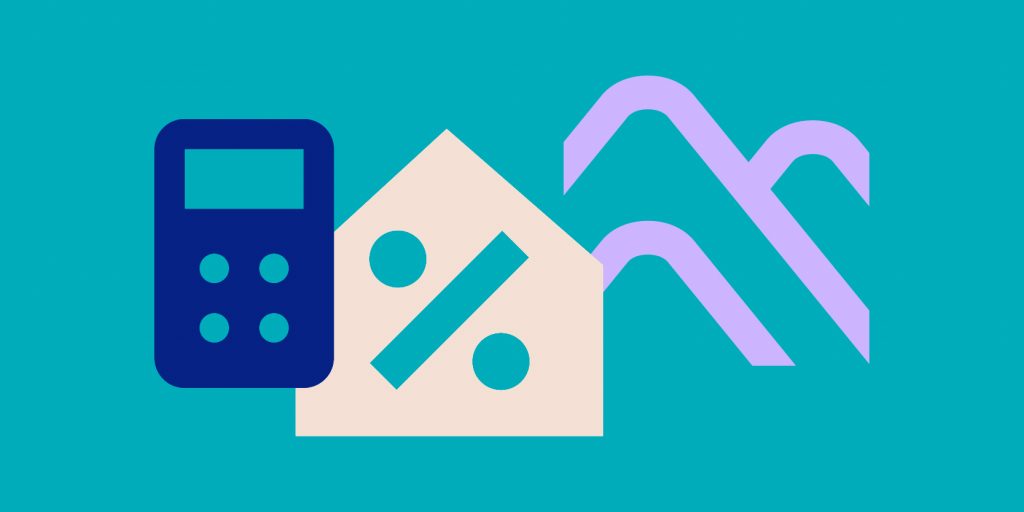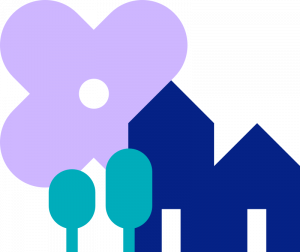Your life and finances are different from every other home buyer, and your mortgage should be tailored to fit. There are several different types of mortgage loans. Finding the type of mortgage that meets your unique needs can save you money and help make you a homeowner sooner.
These types of mortgage loans may fit you, if…
-
…Your credit is great and you have good savings
Conventional mortgage: This is a traditional type of mortgage loan. The mortgage lender assumes more risk than they do with a government-backed loan. Conventional loans can be fixed-rate or adjustable-rate. (See below to know which one is right for you.)
Why could it be right for me?
A conventional loan can be more economical if you have the right financial history. First, you need to have a FICO credit score of at least 620 (and the higher the score, the lower your interest rate).
You don’t need a 20 percent down payment to qualify—it can be as low as 3 percent (though, that’s pretty rare)—but just like with your credit, your loan will end up costing more with a lower down payment. And if you pay less than 20 percent up front, you’ll also pay private mortgage insurance (PMI). (If your down payment is less than 20 percent, you can cancel the PMI when the mortgage balance is paid down to 80 percent.) Use Trulia’s affordability calculator to see how much home you could afford.
-
…You have decent credit and modest savings
FHA loan: Since this type of mortgage loan is backed by the Federal Housing Authority, you can have a lower down payment and will have lower closing costs. Your credit score can be as low as 500 if you have 10 percent to put down. To get FHA’s max financing you need a score of at least 580 and 3.5 percent down.
Why could it be right for me?
Saving up 20 percent in cash for a down payment is really hard with today’s housing prices, and FHA loans can help you avoid paying more in mortgage fees when you don’t have as much to put down. You’ll still have to pay mortgage insurance, but lots of first-time home buyers get this loan because it’s easier to qualify for. If you’re nervous about whether you could even get pre-qualified for a mortgage, this could be the loan that makes it happen.
-
…You’re a military veteran
VA loan: This loan is guaranteed by the U.S. Department of Military Affairs and is meant to help military families purchase a home or do home improvements. The VA doesn’t lend you money itself; rather, it guarantees part of the loan, which you get from a mortgage lender. VA loans offer many borrowers a 0% down payment and reduced closing costs.
Why could it be right for me?
If you’re a veteran, active military member, or a military spouse who meets certain criteria, this could be for you. You can check your eligibility at ebenefits.va.gov. The VA loan is a good option if you’re trying to rebuild credit or recently did so.
-
…You’re buying in a rural area
USDA rural development single family housing guaranteed loan: The U.S. Department of Agriculture backs this type of loan, which targets areas with fewer than 35,000 people. Like the VA, it’s a guaranteed loan and not a mortgage, and it also offers reduced mortgage insurance costs and 0% minimum down payments.
Why could it be right for me?
If you’re looking to buy a house to build, rehabilitate, improve or relocate in an eligible rural area and meet the income eligibility requirements, this could be a great way to finance it.
-
…You’re planning on living in the home long-term
Fixed-rate mortgages: Some conventional loans and most of the government-backed loans are fixed-rate mortgages. For these, the total amount of principal and interest is spread out evenly over the life of the loan—15 or 30 years, usually—on a per month basis so you pay the same amount each month. (What you pay in total can fluctuate with the rise and fall of property taxes and homeowner’s insurance though.) Its interest rate is typically higher than that of an adjustable-rate mortgage, or ARM (see below).
Why could it be right for me?
If you’re on a budget and plan to own your new home for more than five years, a fixed-rate mortgage is a good option. While the initial lower interest rate of an ARM can be tempting, it can easily become too expensive down the road. Use Trulia’s mortgage calculator to find out what your monthly payment could be for the life of the loan.
-
…You’re going to sell after a few years
Adjustable-rate mortgages: The ARM comes with an interest rate that fluctuates after an initial time period. At the beginning, the interest rate is lower than that of the fixed-rate mortgage, but after that set time (typically 3, 5, 7, or 10 years) it will rise and fall with the market.
Why could it be right for me?
If you don’t plan to remain in your house more than the initial rate period, or you’re buying a home that is way below your budget, an ARM could work for you.
Now that you know the most common types of mortgages, it’s time to get into the nitty-gritty: understanding all the details. We’ve got definitions for the mortgage terms you need to know.



